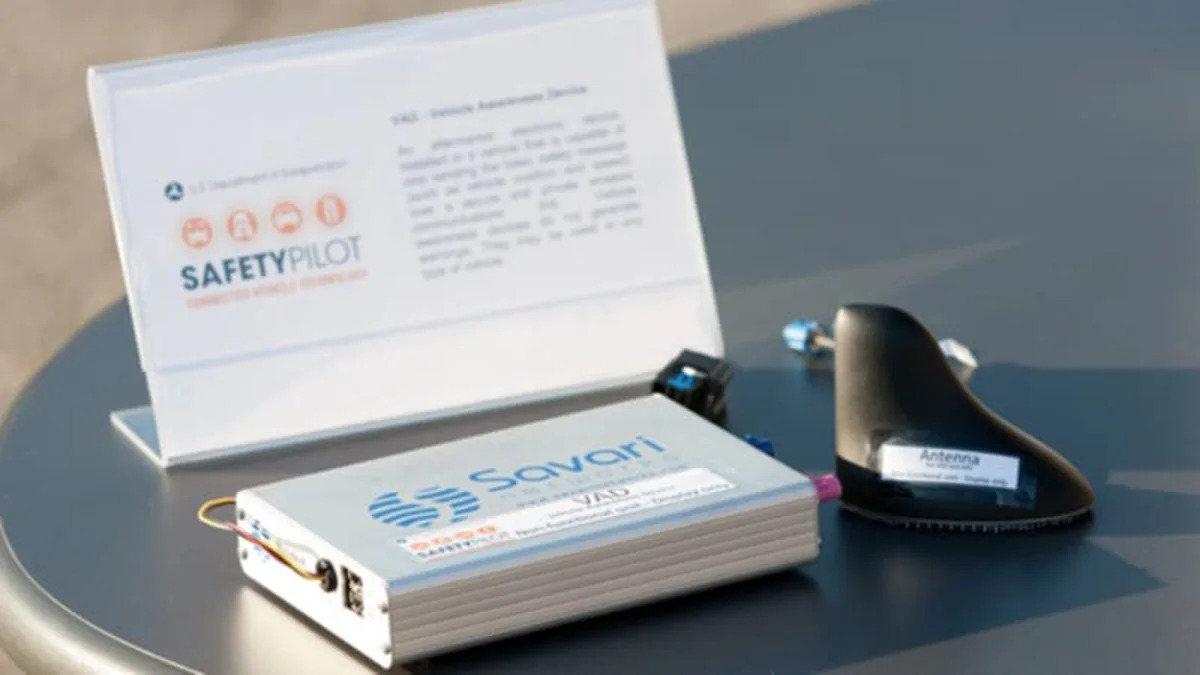The next phase of a massive federal study on connected car technology will focus as much on the people surrounding cars as the vehicles themselves.
Researchers at the University of Michigan, which is administering the study with funds from the US Department of Transportation, are placing an emphasis on protecting vulnerable road users as they develop and test new traffic systems.
For good reason: Even as the overall number of traffic fatalities in America has declined over the past decade, the number of pedestrian, motorcyclist and bicyclist deaths have all increased for three consecutive years. Together, the three groups comprised 31 percent of all traffic deaths in 2012, the latest year for which data is available.
Automakers and researchers have searched for ways to address the problem. While it's not an immediate solution, Jim Sayer, a research assistant in the human factors group at the University of Michigan's Transportation Research Institute, says technology that protects the most vulnerable will evolve alongside connected-car technology.
On Tuesday, Sayer said the next stage of protecting pedestrians, bicyclists and motorcyclists lies in creating chips and apps for cell phones that can monitor and communicate the position of all road users in a connected-car environment. As part of the upcoming Michigan study, he'll work on enhancing such technology and determining how various users might issue warnings to each other.

"We're working on cell phones that can broadcast your position up to 10 times per second, and working on algorithms that determine if you are walking, in a car, riding in a bike line or whatever, and broadcast accordingly," Sayer said.
In a previous iteration of Michigan's connected car study, which ran from August 2012 to August 2013, researchers equipped pedestrians and a bicyclist with devices that produced similar data, but when the continuation of the study kicks off in August 2014, they will concentrating on producing the data from cell phones.
"The chips will be built into cell phones," Sayer said. "There are other devices you can carry around with you, but the problem is that people don't remember them or don't want to keep charging them. ... The battery is going to be dead when they need it the most."
The Department of Transportation is expected to release findings and recommendations from the first study a matter of days. The next phase of the study will run for three years and be completed in 2017.
Researchers at the University of Michigan, which is administering the study with funds from the US Department of Transportation, are placing an emphasis on protecting vulnerable road users as they develop and test new traffic systems.
For good reason: Even as the overall number of traffic fatalities in America has declined over the past decade, the number of pedestrian, motorcyclist and bicyclist deaths have all increased for three consecutive years. Together, the three groups comprised 31 percent of all traffic deaths in 2012, the latest year for which data is available.
Automakers and researchers have searched for ways to address the problem. While it's not an immediate solution, Jim Sayer, a research assistant in the human factors group at the University of Michigan's Transportation Research Institute, says technology that protects the most vulnerable will evolve alongside connected-car technology.
On Tuesday, Sayer said the next stage of protecting pedestrians, bicyclists and motorcyclists lies in creating chips and apps for cell phones that can monitor and communicate the position of all road users in a connected-car environment. As part of the upcoming Michigan study, he'll work on enhancing such technology and determining how various users might issue warnings to each other.

"We're working on cell phones that can broadcast your position up to 10 times per second, and working on algorithms that determine if you are walking, in a car, riding in a bike line or whatever, and broadcast accordingly," Sayer said.
In a previous iteration of Michigan's connected car study, which ran from August 2012 to August 2013, researchers equipped pedestrians and a bicyclist with devices that produced similar data, but when the continuation of the study kicks off in August 2014, they will concentrating on producing the data from cell phones.
"The chips will be built into cell phones," Sayer said. "There are other devices you can carry around with you, but the problem is that people don't remember them or don't want to keep charging them. ... The battery is going to be dead when they need it the most."
The Department of Transportation is expected to release findings and recommendations from the first study a matter of days. The next phase of the study will run for three years and be completed in 2017.


Sign in to post
Please sign in to leave a comment.
Continue